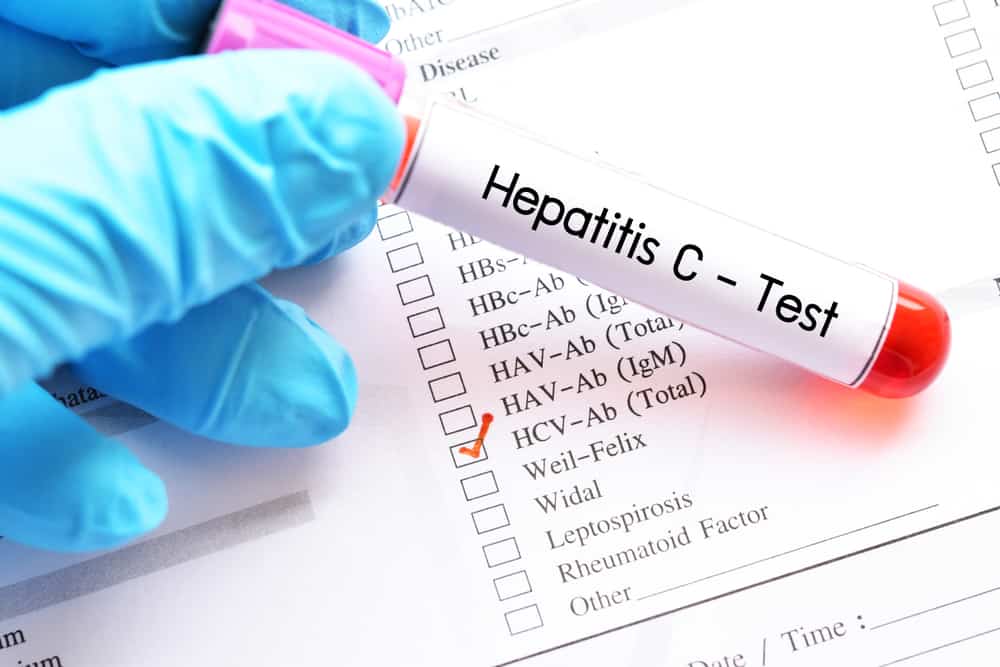Contents:
- Medical Video: 5 common causes of coughing up blood
- The cause of coughing out bloody phlegm
- 1. Acute bronchitis
- 2. Tuberculosis
- 3. Pulmonary embolism
- 4. Lung cancer
- 5. Bronchiectasis
- Coughing up phlegm should not be underestimated
Medical Video: 5 common causes of coughing up blood
Bloody cough is common and easily treated. Another story is if you cough out bloody phlegm. This condition may indicate a more serious health disorder and need to be consulted immediately by a doctor. The following is a more complete explanation.
The cause of coughing out bloody phlegm
Quoted from Livestrong, cough with phlegm accompanied by blood is usually caused by a disease that attacks the respiratory system. What are they?
1. Acute bronchitis
Acute bronchitis can be one of the causes of bloody phlegm. Bronchitis is caused by a bacterial or viral infection that makes the airways inflamed.
This disease usually occurs three to four days after a cold or flu that does not heal, is characterized by a dry cough. Although rare, coughing due to acute bronchitis can lead to coughing up phlegm to drawing blood. Generally people get acute bronchitis for 2 to 3 weeks
Blood in sputum originates from the rupture of blood vessels around the bronchi (windpipe branches) due to inflammation.
Other symptoms that accompany acute bronchitis are:
- Cough.
- Fatigue.
- Hard to breathe.
- Mild fever and chills.
- The chest hurts.
2. Tuberculosis
Tuberculosis or TB / TB is an infectious disease caused by an infection of the bacterium Mycobacterium tuberculosis. TB requires long-term treatment. Untreated tuberculosis can cause complications that reduce lung function, characterized by coughing that secretes bloody phlegm.
Apart from coughing up phlegm with blood, TB symptoms include:
- Cough more than three weeks.
- Fever.
- Sweating at night.
- The body feels weak.
- Body weight drops dramatically due to decreased appetite.
3. Pulmonary embolism
Pulmonary embolism occurs when there is a blood clot that clogs one of the blood vessels in the lung. These blood clots usually form in blood vessels in other parts of the body, generally the legs or calves, which are then released and run back up to the lungs.
Some common symptoms that indicate pulmonary embolism in addition to bloody phlegm are:
- Shortness of breath, usually appears suddenly.
- Chest pain that worsens when you try to take a deep breath, cough, eat, or bend.
- Foot pain or swelling that usually occurs in the calf.
- Fever.
- Excessive sweating.
- Fast and irregular heartbeat.
- The head feels light or dizzy.
Blood clots that block the pulmonary arteries can block the flow of air, which endangers life.
4. Lung cancer
Most, if not all, cases of lung cancer are caused by cigarettes. Not only people who are active in smoking, people who often breathe cigarette smoke but never smoke are just as risky for this disease. Lung cancer generally attacks people over the age of 40 years.
Just like other cancers, the symptoms of lung cancer initially do not look obvious. New symptoms will appear when the cancer has spread and stepped on an advanced stage.
Various signs and symptoms of lung cancer such as:
- Cough that doesn't go away
- Bleeding cough
- Hard to breathe
- Chest pain
- Hoarseness
- Bones hurt
- Headache
5. Bronchiectasis
Bronchiectasis is a chronic respiratory disorder caused by infection of the bronchi. Bronchial inflammation causes the bronchial wall to thicken abnormally so that the lungs have difficulty cleaning mucus. This excess mucus can eventually cause infection which can cause a gradual loss of lung function.
People who have bronchiectasis will experience coughing up phlegm that doesn't heal with too much phlegm. If the infection worsens, even though it can contain blood for a long time.
This disease is permanent which can recur at any time.
Coughing up phlegm should not be underestimated
If you have ever experienced a cough with bloody phlegm, don't take it for granted. If this has happened before, this might be a sign of a serious illness. So, not to guess without a clear medical basis, immediately consult your condition to the doctor to ascertain the cause.
To prevent various diseases that can cause bloody phlegm, from now on try to adopt a healthy lifestyle. Eating healthy and nutrient-rich foods, avoiding exposure to cigarette smoke and other harmful chemicals, and exercising regularly can help maintain a healthy lung and your respiratory system.













